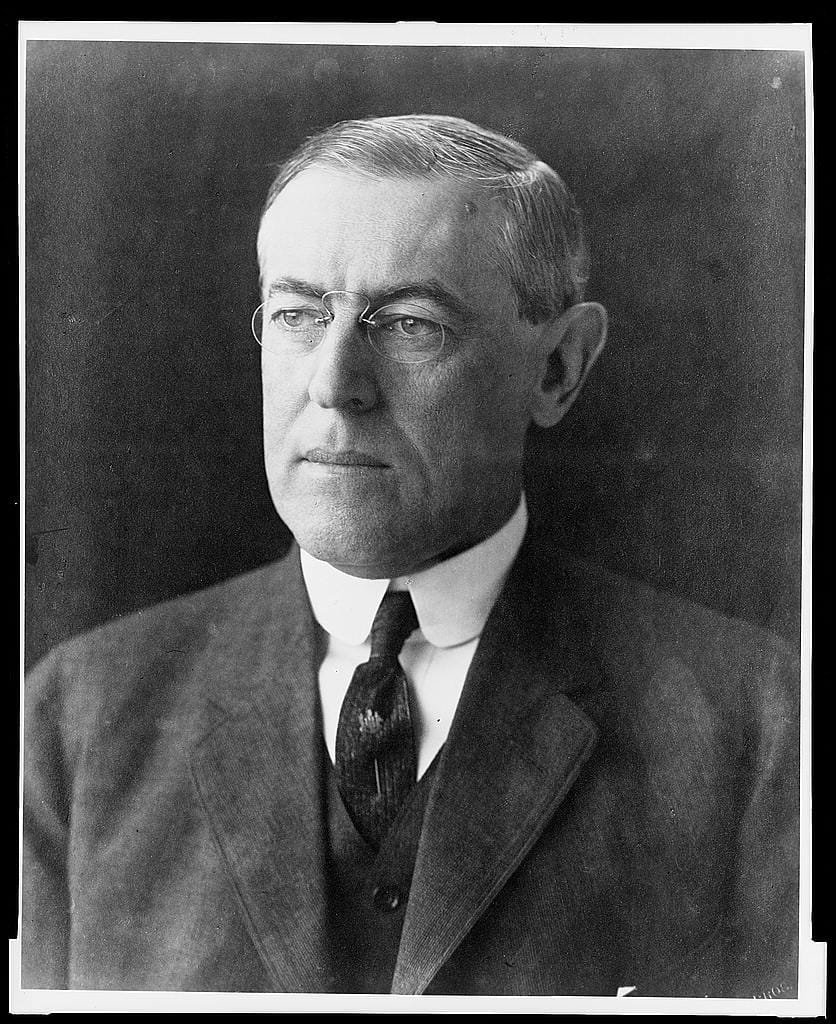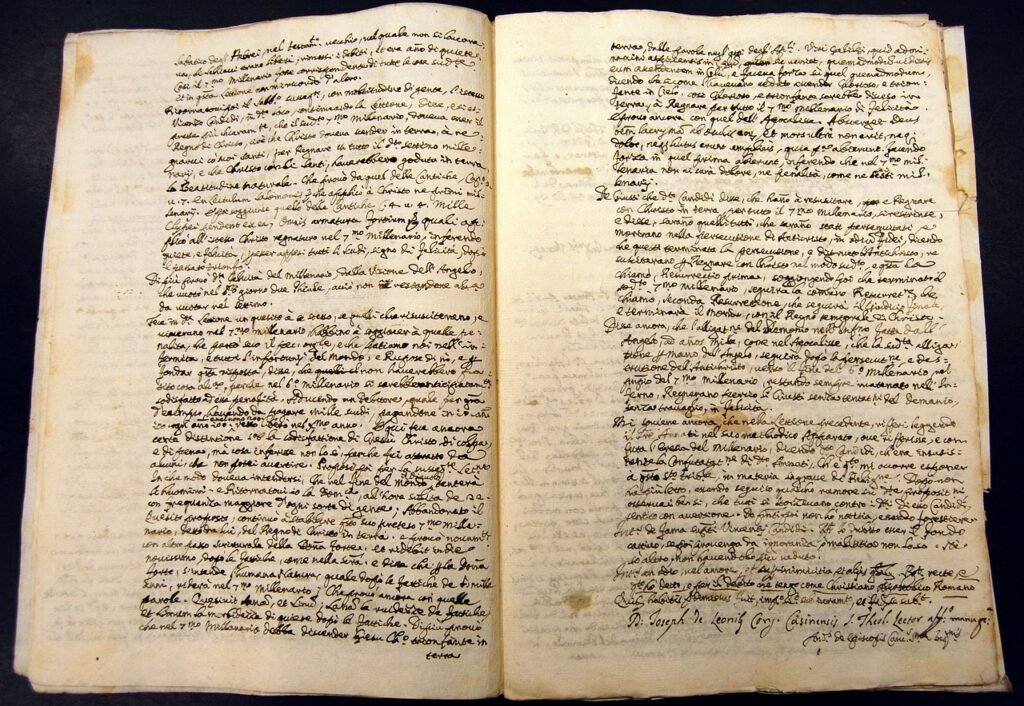




Woodrow Wilson
Woodrow Wilson, the 28th President of the United States, served from 1913 to 1921, a period marked by profound changes in American society and global politics. Born on December 28, 1856, in Staunton, Virginia, Wilson was an academic who became a statesman, leading the nation through World War I and championing the League of Nations. His progressive domestic policies and idealistic international vision left an indelible mark on the United States and the world. This biography explores Wilson’s early life, academic career, political rise, presidency, and enduring legacy.
Early Life and Education
Thomas Woodrow Wilson was born to Joseph Ruggles Wilson and Jessie Janet Woodrow Wilson, both of Scottish and Irish descent. His father was a Presbyterian minister, and his mother was a minister’s daughter, which influenced Wilson’s devout Christian upbringing. The family moved frequently due to his father’s pastoral duties, living in Augusta, Georgia, and Columbia, South Carolina, among other places. This Southern upbringing during the Civil War and Reconstruction profoundly impacted Wilson’s worldview (Brands, 2003).
Wilson’s early education was inconsistent due to frequent relocations and bouts of illness. Despite these challenges, he was an avid reader and displayed an early interest in public affairs and oratory. He attended Davidson College in North Carolina for a year before transferring to Princeton University (then the College of New Jersey), where he graduated in 1879. At Princeton, Wilson was an active member of debate clubs and was known for his eloquence and leadership qualities (Cooper, 2009).
After Princeton, Wilson studied law at the University of Virginia, but health issues again interrupted his studies. He eventually earned his law degree independently and practiced law in Atlanta, Georgia, briefly. Finding the legal profession unsatisfying, Wilson pursued graduate studies in political science at Johns Hopkins University, where he earned a Ph.D. in 1886, making him the only U.S. president to hold a doctorate (Cooper, 2009).
Academic Career and Political Writings
Wilson’s academic career began with teaching positions at Bryn Mawr College and Wesleyan University before he joined the faculty at Princeton University in 1890. At Princeton, he became a prominent scholar in political science and history, publishing influential works such as Congressional Government (1885) and The State (1889). His writings emphasized the importance of a strong executive branch and efficient government administration, ideas that would later influence his presidency (Brands, 2003).
In 1902, Wilson was appointed president of Princeton University, where he embarked on an ambitious reform agenda. He sought to modernize the curriculum, enhance academic standards, and democratize student life by reducing the influence of exclusive social clubs. His efforts met with mixed success and significant resistance from faculty and alumni, but they established him as a reform-minded leader (Berg, 2013).
Governor of New Jersey
Wilson’s success at Princeton and his growing reputation as a progressive reformer caught the attention of political leaders. In 1910, he was persuaded to run for governor of New Jersey as a Democrat. Despite his lack of prior political experience, Wilson won the election and swiftly implemented a series of progressive reforms, including direct primary elections, workmen’s compensation, and public utility regulation. His effective governance and ability to navigate complex political landscapes further elevated his national profile (Link, 1954).
The Presidency: Domestic Policies and Progressive Reforms
In 1912, Wilson secured the Democratic nomination for president, running on a platform of “New Freedom,” which emphasized individual liberties and economic opportunities. The election was notable for the split in the Republican Party between incumbent President William Howard Taft and former President Theodore Roosevelt, who ran as a Progressive. Wilson won the presidency with a plurality of the popular vote and a decisive electoral victory (Cooper, 2009).
Wilson’s presidency was marked by significant domestic achievements. He pursued an ambitious legislative agenda that included the establishment of the Federal Reserve System, the Federal Trade Commission, and the Clayton Antitrust Act. These measures aimed to regulate the economy, prevent monopolies, and protect consumers and workers (Link, 1954).
Wilson also championed labor rights, supporting the Adamson Act, which established an eight-hour workday for railroad workers, and the Keating-Owen Child Labor Act, which sought to restrict child labor (though it was later declared unconstitutional). His administration implemented progressive income tax reforms through the ratification of the 16th Amendment and expanded government regulation of business practices (Berg, 2013).
World War I and International Leadership
Wilson’s second term was dominated by World War I. Initially, he maintained a stance of neutrality, reflecting the isolationist sentiment prevalent in the United States. However, repeated violations of American neutrality by Germany, including unrestricted submarine warfare and the Zimmermann Telegram, led Wilson to ask Congress for a declaration of war in April 1917 (Brands, 2003).
As a wartime president, Wilson oversaw the mobilization of the American economy and military. He established the War Industries Board to coordinate industrial production, the Food Administration to manage agricultural resources, and the Committee on Public Information to promote the war effort through propaganda. The Selective Service Act was enacted to draft soldiers, and millions of Americans served in the armed forces (Cooper, 2009).
Wilson’s vision for the post-war world was articulated in his Fourteen Points, a blueprint for peace that emphasized self-determination, free trade, disarmament, and the establishment of a League of Nations to ensure collective security. The Fourteen Points were presented at the Paris Peace Conference in 1919 and formed the basis for the Treaty of Versailles. Wilson’s idealism and commitment to the League of Nations were central to his international policy, though they faced significant opposition both abroad and at home (Berg, 2013).
The League of Nations and Post-War Challenges
Wilson’s campaign for the League of Nations was met with resistance from isolationist senators led by Henry Cabot Lodge, who opposed American involvement in international alliances. The debate over the League and the Treaty of Versailles became a major political battle, and despite Wilson’s nationwide speaking tour to garner public support, the Senate ultimately rejected the treaty (Link, 1954).
Wilson’s health deteriorated during this period, and he suffered a severe stroke in October 1919, which left him partially paralyzed and incapacitated for the remainder of his presidency. His wife, Edith Wilson, assumed a significant role in managing his affairs and controlling access to the president, leading some historians to refer to her as the “first female president” in practice if not in title (Cooper, 2009).
Later Years and Legacy
Wilson left office in March 1921 and retired to Washington, D.C., where he continued to advocate for the League of Nations and other internationalist causes. His health remained poor, and he largely withdrew from public life. Wilson passed away on February 3, 1924, at the age of 67 (Berg, 2013).
Wilson’s legacy is complex and multifaceted. His contributions to progressive domestic policies and his vision for international cooperation through the League of Nations have had a lasting impact on American and global politics. However, his administration’s record on civil rights is marred by his support for segregation and discriminatory policies, which have led to a critical reassessment of his presidency in recent years (Brands, 2003).
Wilson’s influence on the American political landscape is evident in the enduring institutions and reforms he championed. The Federal Reserve System, established during his presidency, continues to play a crucial role in managing the nation’s monetary policy. His efforts to regulate business practices and protect consumers laid the groundwork for future regulatory frameworks. Internationally, Wilson’s advocacy for self-determination and collective security set the stage for the creation of the United Nations after World War II, embodying his vision of a world governed by diplomacy and cooperation (Link, 1954).
Final Summary
Woodrow Wilson’s life and presidency were marked by significant achievements and profound challenges. From his early career as an academic and reformer to his leadership during World War I and his vision for a post-war world, Wilson’s contributions to American society and international relations are enduring and influential. His legacy, while complex and sometimes contentious, reflects the aspirations and contradictions of the Progressive Era and the early 20th century.
Wilson’s commitment to progressive reforms, economic regulation, and internationalism reshaped the American political landscape and left a lasting impact on global governance. As a leader who navigated the nation through one of its most turbulent periods, Wilson’s life and presidency offer valuable insights into the challenges and opportunities of leadership in times of change and crisis.
References
Berg, A. S. (2013). Wilson. G.P. Putnam’s Sons.
Brands, H. W. (2003). Woodrow Wilson. Times Books.
Cooper, J. M. (2009). Woodrow Wilson: A Biography. Knopf.
Link, A. S. (1954). Wilson: The New Freedom. Princeton University Press.
Link, A. S. (1965). Wilson: The Struggle for Neutrality, 1914-1915. Princeton University Press.
